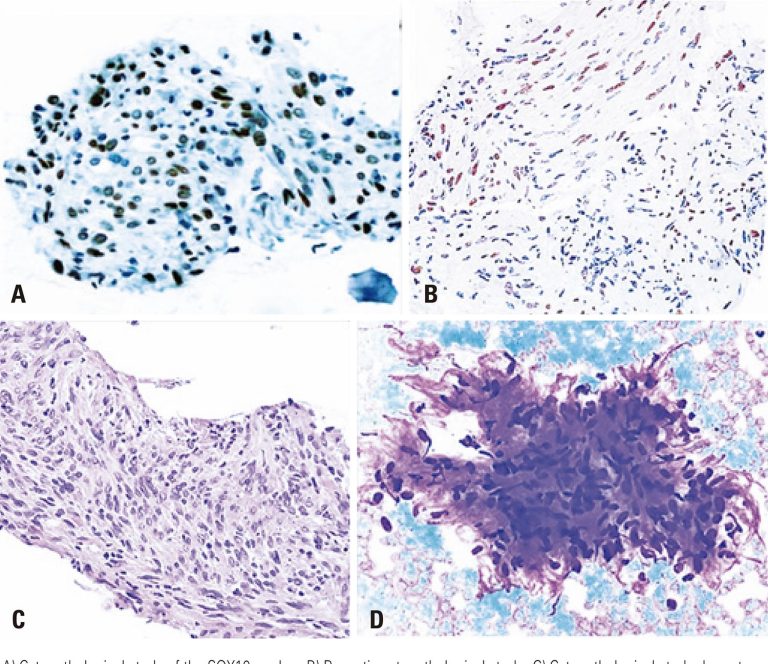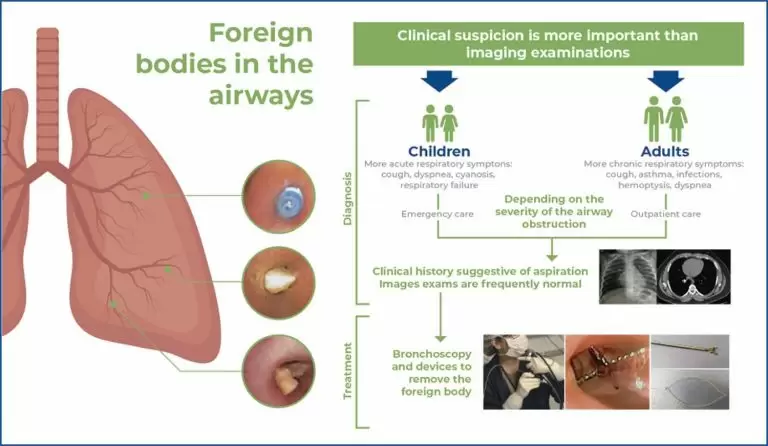30/jan/2024
Benign cervical schwannoma with tracheal invasion
DOI: 10.31744/einstein_journal/2024RC0528
ABSTRACT Schwannomas commonly develop in the cervical region, 25% – 45% of cases are diagnosed in this anatomical region. Tracheal neurogenic tumors are exceedingly rare and can be misdiagnosed as invasive thyroid carcinomas or other infiltrating malignancies when present at the level of the thyroid gland. Here, we present a case of synchronous benign cervical schwannoma with tracheal invasion and papillary thyroid carcinoma in a patient who was initially hospitalized for COVID-19. The patient presented with dyspnea that was later […]
Palavras-chave: Diagnóstico por computador; Claudicação intermitente; Neoplasm invasiveness; Neurilemoma; Thyroid neoplasms; Tireoidectomia; Trachea; Tracheal neoplasms
08/dez/2023
Analysis of 108 flexible bronchoscopies for the removal of foreign bodies from the airways
DOI: 10.31744/einstein_journal/2023AO0391
Highlights Foreign body aspiration into the airways is common in adults and children, especially in the extremes of age. Coughing, wheezing, and dyspnea may occur and can be life-threatening. In airway foreign body, clinical suspicion is more important than imaging exams. Bronchoscopy under general anesthesia is safe and effective for removing foreign bodies; it ensures timely relief and prevents further complications. ABSTRACT Objective: To describe the clinical, bronchoscopic, diagnostic, and therapeutic aspects between children and adults. Methods: This retrospective study […]
Palavras-chave: Adultos; Airway obstruction; Broncoscopia; Children; Diagnóstico por computador; Respiratory aspiration; Terapêutica
01/abr/2014
Efeito de aprendizagem de testes cognitivos computadorizados em idosos
DOI: 10.1590/S1679-45082014AO2954
Objetivo Avaliar o efeito da aprendizagem nos testes cognitivos computadorizados em idosos da comunidade. Métodos Estudo transversal, com 20 idosos – 10 mulheres e 10 homens, com média de idade de 77,5 (±4,28) anos. Os voluntários realizaram duas séries em sequência de testes cognitivos computadorizados e seus resultados foram comparados. Os testes aplicados foram: Trail Making A e B,Spatial Recognition, Go/No Go, Memory Span, Pattern Recognition e Reverse Memory Span. Resultados Houve efeito de aprendizagem na comparação dos resultados somente […]
Palavras-chave: Aprendizagem; Diagnóstico por computador; Idoso; Testes neuropsicológicos



